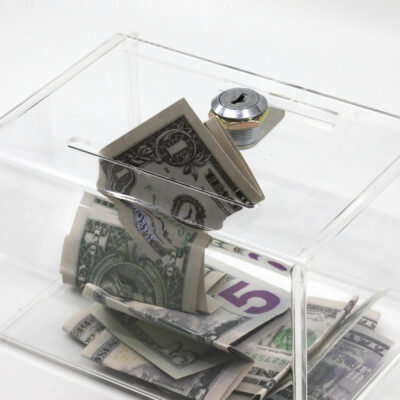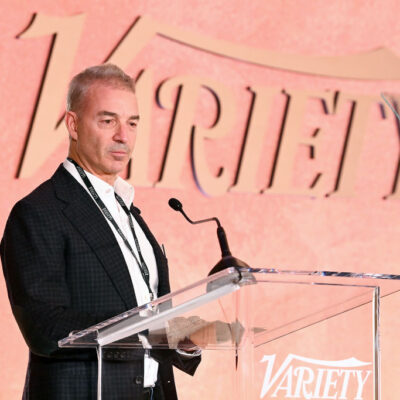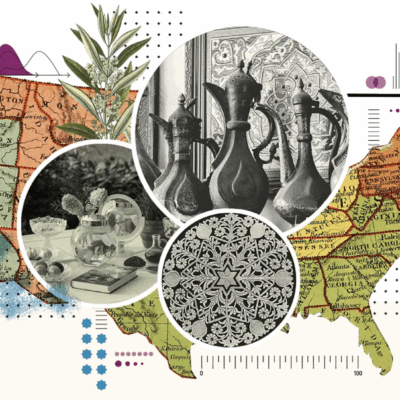Unchecked Power

A Kol Nidre sermon delivered by Rabbi Jill L. Maderer
Avinu Malkenu: We have strayed and sinned before you.
Anachnu chatanu/ We have done wrong.
Al chet shechatanu lifanecha–
For our sins, our God, v’al kulam – for all of these, kaper lanu – lead us to atonement.
This High Holy Day season is the first time our entire community is gathering, since the nation has been shaken by the increasing awareness of sexual harassment and sexual assault.
This could be a difficult sermon to hear if you have been harassed or assaulted. You are not alone. This could be a difficult sermon to hear if you have harassed, assaulted or devalued women, and you are working on the difficult path towards tshuvah/repentance.
Thanks to Jodi Kantor, Megan Twohey, Tarana Burke and Alyssa Milano, “Me Too,” has been our teacher this year. Although it is not women’s or victims’ or survivors’ responsibility to fix sexism – a problem that hurts not only women, but all genders – the brave Me Too accounts have helped to demonstrate the magnitude. It’s your neighbor posting MeToo. Actually, many of your neighbors.
Sexual harassment and assault are not only a problem among public figures; if it’s out there, it’s in this room, and in us. We have done wrong, not only in acts of sexual harassment or assault, but in our tolerance of systems that uphold gender power imbalance. Al chet shechatanu lifanecha – for the sins we have committed against You with sexual misconduct and abuse of power, lead us to atonement.
Men experience sexual harassment and assault, and there are female perpetrators, but it’s the misconduct against women, that is the epidemic. Because sexual harassment and assault are not about sex; they are about power. And societally, women have less power. When our society treats women differently from men, it is about unequal power.
There are many areas of gender bias, that I care about, but will have to save for a different sermon, including the pay-gap, rape culture, men’s repentance paths, and LGBTQ+ rights; and for the purpose of tonight’s message, I will speak with some gender binary simplicity. I’d like to focus tonight on the notion that, when we treat women differently than the way the treat men, it leads to a power imbalance in society, that enables power abuses, such as: the devaluing of women, and sexual harassment. And, I’d like to focus on how each of us can identify our own power, and use it.
How easy it is for us to miss the problem. My male friends tell me, they want to do right by women’s equality, but they tell me how easy it is to miss the sexism, or to let it slide. In Psalm 90, the Psalmist calls out: “O God, You can see our concealed shortcomings.” Indeed, often, gender bias is concealed – implicit, quiet, or so normalized that it’s accepted – hardly noticed.
Last year at Berkman Mercaz Limud (our religious school), a father and his young daughter and son, let’s call them, Sophie and Max, were greeted by a gentleman. This man sweetly said to Sophie, “you are so beautiful!” And the father said to the man, politely but loud enough so that Sophie and Max could hear it: “She is smart and she is kind.”
The Yom Kippur afternoon Torah portion, Kiddoshim, teaches: “Rebuke your friend.” Don’t humiliate, but, don’t let it slide. Tradition rejects quiet bystanding. Speaking up in this way is not easy; it feels awkward. How many of us agree with this father, but have not spoken up. It’s time for us to determine: We are going to speak up. These children see their father rejecting the way society treats girls and boys differently.
So our boy, Max: After a lifetime of hearing his father speak up for the important reasons his sister should be valued, what do you think the impact will be? Picture Max as an adult. I imagine this boy will be much more likely to value women as equals, and I imagine both Sophie and Max will challenge situations when women are treated differently than men.
Now, had the father remained quiet, or had he agreed – not just this one time but constantly, because she gets such appearance comments all the time – had he agreed: “Thank, you, yes she is beautiful,” that too, would have sent a message. Perhaps then, his son and daughter would be conditioned to become less likely to speak up in the face of sexism.
Studies show that, most women do not speak up – nor do bystanders around them – when they experience devaluing comments, or when they experience sexual harassment. Why such silence?! What are people afraid of? Losing a job? Perhaps. But I believe that most of all, women are trying to protect their dignity – to avoid allowing their character to be put on trial.
Where is this fear rooted? In reality. In my formative years, I witnessed the Professor Anita Hill hearings in Oct. 1991. As now-Justice Clarence Thomas was being considered for the United States Supreme Court, Professor Hill shared her experience of his sexual harassment. The all-male, all-white Senate committee, grilled Professor Hill. Senator Arlen Spector (of blessed memory), a friend to women’s reproductive rights in many other seasons, accused Hill of being “unfair” to bring the accusation; and committee chairperson Senator Joe Biden, now an advocate for women, neglected to bring a sexual harassment expert witness, leaving Anita Hill to explain what sexual harassment is! So many of us women watched, praying that we would never find ourselves sitting in the seat she occupied. Not in a Senate hearing, not in a courtroom, not in an HR office. It’s no wonder when women are inclined to accuse anonymously.
The hearings process gave permission for people to abuse power in the workplace and to demonize accusers when they do step forward; we see this still today. The Senators, the nation, believed Anita Hill; it just didn’t matter. Sexual harassment was acceptable; some of the members of that Judiciary panel could themselves have been accused of harassment. The system protects itself. Beyond the US Senate, our systems protect themselves.
What can we do with an inequality so entrenched in our society? How do we confront systems that protect the predator, that tolerate the abuse of power? We begin by turning to Jewish wisdom.
In our ancient and patriarchal tradition, women’s voices are missing. Yet, in our texts we encounter teachings about power which can ground our understanding of Jewish values that apply today.
In the Torah’s story of Babel, the people of the city endeavor to build a tower with its top in the sky, in order to make a name for themselves. But God takes it down, saying: “If … this is how they have begun to act, then nothing they may propose to do, will be out of their reach.” Nothing out of their reach. Unchecked power.
When God sees unchecked power, God dismantles it.
When we see unchecked power, we must dismantle it.
The power imbalance, misuse and abuse that enables inequality, is the same power imbalance, that enables sexual harassment, and is the same power imbalance that enables the devaluing of women, and the blind eyes that surround it.
So what can we do, to dismantle it?
I am grateful that so many people, especially men, have asked: what can we do to help? It is as if they are asking, how do we partner with Sophie and Max’s father, and determine: we are going to speak up. This is about power, and so we begin by taking steps to balance power. I’d like to offer you, one action list designed for all genders, and a second list designed specifically for men.
Al chet shechatanu lifanecha– For our sins, O God, lead us to atonement. I invite you to join me, in these actions that we can take, no matter our gender. Let’s call this first list, the Dismantle Gender Power Imbalance Action List. (I know, it rolls right off the tongue.) We have been conditioned to act in ways that maintain sexism – this is not a blame list; it’s a betterment list. OK, here’s where we start:
When a woman tells you she has been harassed, believe her.
When you start a conversation with a woman, notice how easy it is to default to a comment about her looks. Resist that temptation. Women are judged by and get so many comments on their looks, that it devalues their work and other contributions.
If you see a person touch someone who looks uncomfortable with it, say something.
If a woman has an earned title, and you are in her professional setting and in a professional situation, address her using that title.
If you hear a sexist joke, say: That’s not funny and you’re better than that.
If you hear your dentist refer to the hygenists as “the girls,” say: please speak about professional adult females in your office, as women.
Lead with an understanding that no arena, achieves its potential, until different kinds of people are represented – not the boardroom, the Senate, the synagogue – so pursue diversity in leadership cultivation, hiring, and professional mentoring pipelines.
Bring anti-bias training, to the places where you lead.
Many areas of change will be strengthened by men’s initiative, and I welcome your partnership. I do not blame you for sexism; we inherited it. And now, you have the opportunity to do something about it. Let’s call this second list, the Dismantle Gender Power Imbalance Action List for Allies:
If you are invited to participate, on an all-male panel or committee, decline, and say why.
Negotiate for, and take, parental leave.
Don’t participate in all-male networking, whether at the bar or on the golf-course.
Notice if more meeting or conversation time is filled with men’s voices, than with women’s. Practice self-restraint; cede the floor.
Imagine if, in October 1991, two of the most powerful men in our nation, had had the courage to use their power, to educate the Senate committee, and the nation, about sexual harassment. They might have been sacrificing their jobs, their friends, their power, their status.
I am not challenging victims to step forward; it is not the victims’ responsibility to accuse. I am challenging the rest of us, during times when we are not the victims.
Now, which items from the Dismantle List, apply to areas where you have influence? Imagine the place in your life where you have the most power, the most status, the most to lose. There, you witness sexual harassment, or anything that maintains gender power imbalance. You allow yourself to see it. When you witness abuse of power, by someone who can strip you of your power… do you accommodate the predator, or do you allow yourself to notice?
Now, what would it take, to make a change to that entire system? Even if you do not witness harassment, how do your circles – your office, your school, your committee, your kitchen table – how do those systems treat women and men differently? When you see aspects of a system that benefit you, but limit women, do you speak up? Are you ready to make a sacrifice?
Perhaps the Dismantle Gender Power Imbalance Action List sounds easy enough. I admit: I don’t think it’s easy. I have pretty solid feminist credentials: I serve on the Central Conference of American Rabbis (CCAR) Task Force for the Experience of Women in the Rabbinate; I wrote the chapter on Judaism and Sexual Harassment and Assault in the Reform Movement’s new Social Justice book; I have a degree in Women’s Studies. And yet, I do not think it is easy to speak up. I too, have failed.
Al chet shechatanu lifanecha: for the sins I have committed when I chose to stay quiet so someone would like me. My child’s school sports list was emailed: Varsity soccer. Varsity Girls’ soccer. Varsity hockey. Varsity Girls’ hockey. When boys are the norm, as if they have no gender, and girls are the other, because they have a gender, the gender power is out of balance; when boys and girls are treated differently, girls are devalued. But my kid is starting a new school. I didn’t want them to think I was difficult. So I kept quiet. On an easy one! Instead of risking a small sacrifice for the pursuit to dismantle gender power imbalance.
Al chet shechatanu lifanecha: for the sins I have committed when I accommodated sexism for my own gain. I wrestled with whether to share this story with you, but I want you to know, I understand how hard it is to stand up to sexism.
Some time ago, we had a guest who was involved in a fundraising effort at Rodeph Shalom. When I introduced myself, he proceeded to say things he would never say to a man. He questioned my title and authority based on my gender, he spoke with sexual innuendo, he leaned in too close, and he had that look on his face. If you don’t know the look, consider yourself lucky; most of the women in the room know the look.
This was not my first sexism rodeo; I’ve faced worse, as many of us have. So I knew how to respond in the moment. I firmly but politely set clear boundaries with my words, and I physically stepped back to put space between us. And then I left the room, with the hope that my response was enough, to set a tone. But, do you see what I did not do? I did not demand that our guest act properly with our staff and congregants. I did not protect others. I did not risk tempting him to walk out of the building. Our congregation was depending on him. I protected the institution, by accommodating the predator. Later I learned that he was, in fact inappropriate with female staff members and congregants. Nothing egregious, but not in alignment with our safe, values-driven community of profound connections.
I am not at peace with my response to our guest, and I know that our entire Dismantling Gender Power Imbalance Action List, is harder than it sounds. I need to work on it; I need to atone. We all do.
So pervasive is inequality, that we have grown accustomed to it – sometimes we don’t even notice. Psalm 90 prods us: “God, You can see our concealed shortcomings.” The Psalm inspires us: look more closely, find shortcomings, so they are no longer concealed from our own understanding.
This has been a ground-shaking year of gender justice perspective, and yet, we have only just begun. We have not seen the sacrifice yet. A handful of high-profile men, does not correct an epidemic. As much progress as has been made, women and men are still treated differently. Sexism remains permitted.
Anachnu chatanu/ We have done wrong.
We have accommodated the predator.
We have protected systems that treat men and women unequally.
We have not made sacrifices, in the face of unchecked power.
We have closed our eyes to the people of the city, who endeavor to build a tower with its top in the sky,
in order to make a name for themselves, as if nothing is out of their reach.
It is time for our tshuvah – our change.
It is time to reveal concealed shortcomings, in our circles, our institutions, and in ourselves.
It is time to pursue gender justice, in every corner of our society.
When God sees unchecked power, God dismantles it.
When we see unchecked power, we must dismantle it.
Al chet shechatanu lifanecha– For our sins, O God, for all of these, lead us to tshuvah.
Rabbi Jill L. Maderer is senior rabbi at Congregation Rodeph Shalom in Philadelphia, PA.













